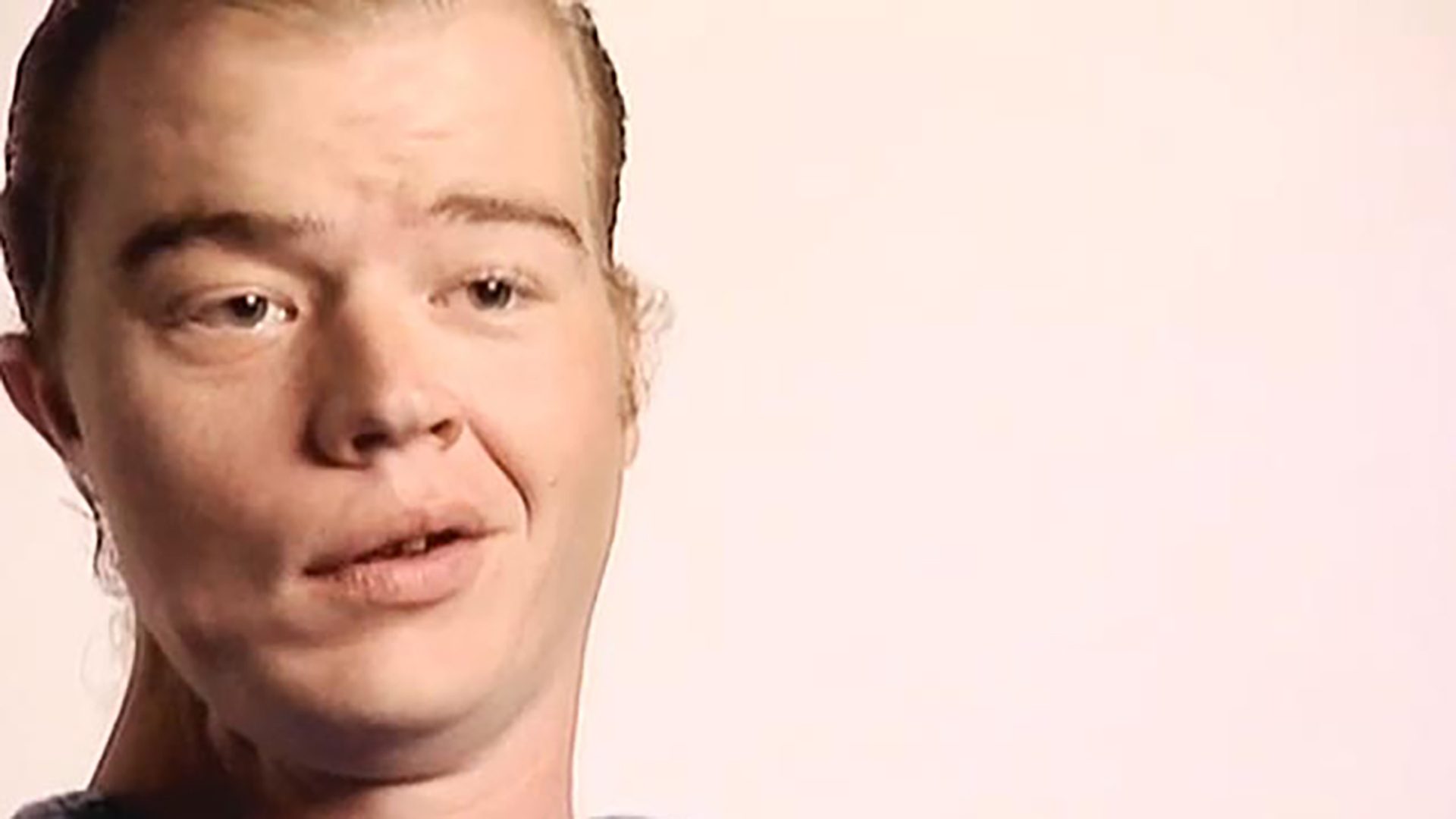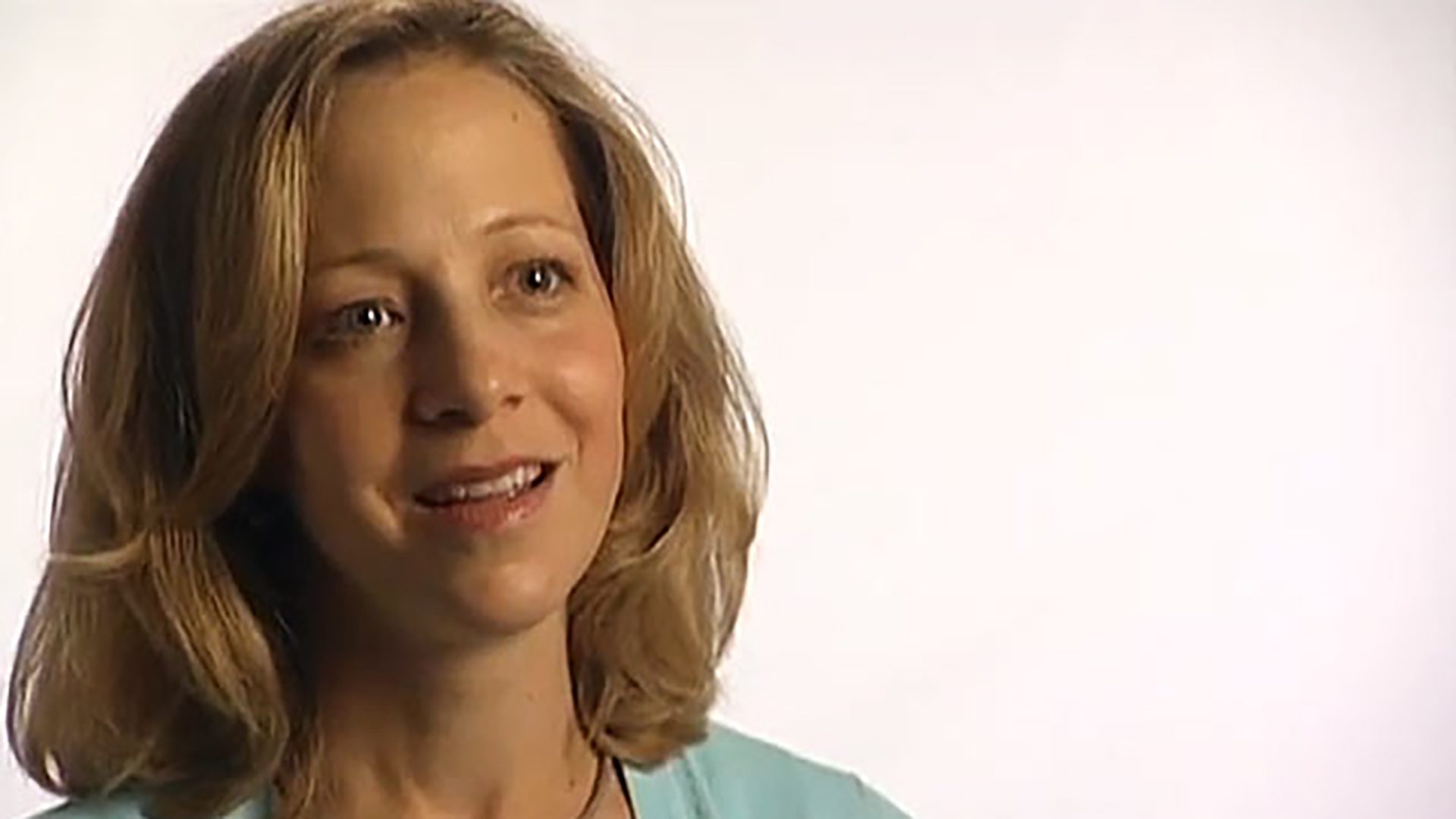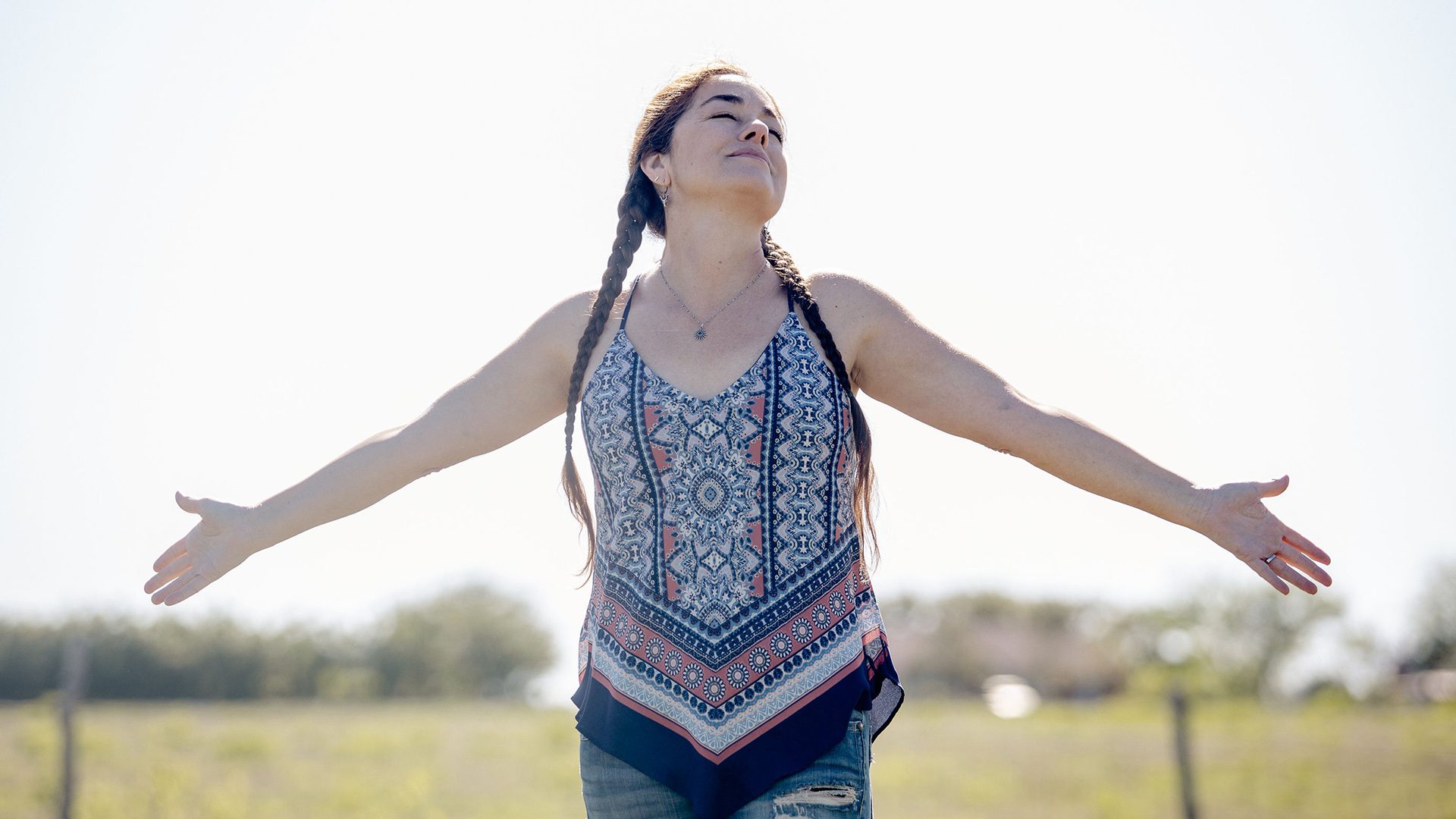Survivor Interview – Joseph N.
Joseph is a squamous cell carcinoma survivor. He talks about his emotional support system, body image, and cognitive changes due to cancer treatment.

My name is Joseph Nipper. I’m 30 years old. When I was 21, I got diagnosed with squamous cell carcinoma of the major carotid gland. And yeah, it changed my life…for the better, I would say overall.
Back when I was 21, I was a pretty crazy kid. I was having a lot of fun, but I was getting in a lot of trouble. I don’t think I knew what was truly important in life. Being able to go through kind of this gauntlet, where I emerge on the other side, has taught me what is truly important, what life is about. It was just an amazing transition. Because I went from kind of going down the wrong path to going up the right path.
People I met and talked to during the whole thing gave me really important little tidbits of how to organize the world. One really good friend told me, “Joseph, anybody it matters to how you look, they don’t matter.” To say that I looked like Quasimodo would be going pretty easy. And being able to come to grips with that was kind of an amazing task for me. The other one being, you know, life is what you live. And everything starts expanding from there. It was total transcendence from the depth of despair that I was in.
During thirteen-and-a-half hours of surgery, they basically cut my ear completely off, from above the ear all the way down into the shoulder. It was called a full right radical neck. For six weeks, eight weeks, you were just in the worst pain of your life. But after that, you go to physical therapy. You learn how to move your body now that you’ve got these new issues. I think dealing with the hearing loss was the hardest part. If it’s completely quiet, I can have any conversation in the world, but you start raising up that level of background noise, and I get completely deaf very quickly.
After eight weeks of radiation, your brain is like mush. You don’t think the same way. You don’t have the energy to think much at all. I don’t nearly have the long-term memory that I did. A lot of that is still kind of grayed out. It’s hard to recall bits and pieces. I mean, you certainly still get flashes, but it’s nowhere near I think the recall level that I used to have.
I can walk into any social situation now and not be nervous at all, until I realize, oh, wow, the side of my face is kind of hanging limp, and I wonder if anybody is noticing my teeth. And so, on one hand, I feel like I can do anything in the world because I’ve gone through this amazing bout with a life or death kind of circumstance. But then there’s always that nervousness at how you’re going to be perceived. You know, we live in a society and that society has organizations and concepts and rules. Whenever you run your head into it, it’s like the Incredible Hulk running into a brick wall. You get a big mess.
You kind of have to look deeper. You have to find a deeper meaning and a deeper value to everything. And be much more a person that values what’s truly important, as opposed to getting hung up in the material things of life and what people look like.
The word survivorship means learning to live. My granddad had cancer a couple of years before me. He died within a couple of weeks as soon as they found it. And I was diagnosed, so I was gonna die. Then the strangest thing happened after surgery — I woke up. All of a sudden, I had to deal with being alive, and I had prepared for death. I hadn’t prepared for life. I had to wake up, and I had to get out of bed, and I still had to go on. And that’s what survivorship means — getting out of bed, going on with life.
I feel like I was a pretty aggressive patient. I really wanted to know exactly what was going on. And the thing I found was that no matter how many questions I had, the doctors don’t know everything, and they can’t give you answers to the questions that they just don’t know. We expect them to have the answers. And when they don’t, they just give us this, “I’m sorry. We can’t do anything about that. That’s just what you’re left with.”
Emotionally, it was the ultimate feeling of having to deal with this by myself. I had broken up with my girlfriend. I had stopped talking to all my friends. I really wanted to huddle up in a corner and be by myself and be alone. I was so afraid of everything. I didn’t know what to feel, so I kind of chose not to feel. And it certainly came out later.
I really wish I would have done it differently, because there were a lot of people who did really care for me, and I had shut them out, thinking I was doing them a favor. But in retrospect, I found out that I had kind of denied them and denied myself the ability to feel that sorrow as it was coming and let it go.
I think that was the hardest part. How do I communicate these feelings like, “I’m gonna die?” And the point is that you just need to. You have to let go all of your conscious thoughts about how weird that’s gonna be for them, and you have to appreciate the fact that these are your friends. They do care about you and they do want to hear it, because they want to be able to work with you.
Your attitude, your emotions change every single day. One day, you don’t want to talk to anybody, and the next day, you’ll talk to anybody that’ll come by. You’re not in a normal world anymore and everything is askew. Things that you normally would have done don’t happen and things that you never would have done you’re in the middle of doing.
People who are going to be caring for people going through an experience like cancer, they have to take it one day at a time. Because that person is going to react to them differently every day. And they just need to be there and fill them full of good energy, lots of love.
I ended up going through a lot of extra pain, I think, because I was doing it by myself and alone. It’s always going to be easier with people that you love and care about around you, supporting you, and you being able to feel that.
As far as my parents were concerned, I tried to give them the mushroom experience — feed them poo and keep them in the dark. I didn’t want them to have to go through all the craziness and fear and pain that I was going through. And it was only talking to them after the fact that I realized they were going through it, too. We just weren’t going through it together. We weren’t gaining the support mechanism out of it, but we still were going through just as much pain. You have the option to keep your family in the dark, but they are gonna be your best source of support. Hope comes from being able to share that pain and knowing that it’s okay and that tomorrow is gonna be another day.
I don’t worry about recurrence, because, you know, if it happens, it happens. It’s just another stride you take in the race. I went through it once, I lived, okay, that’s one time. Go through it again? Oh well, we’ll have to deal with it a second time. Hopefully, you’ll live again. You can’t be afraid of it. You can’t be worried about it. That’s just gonna slow down everything else in your life.

